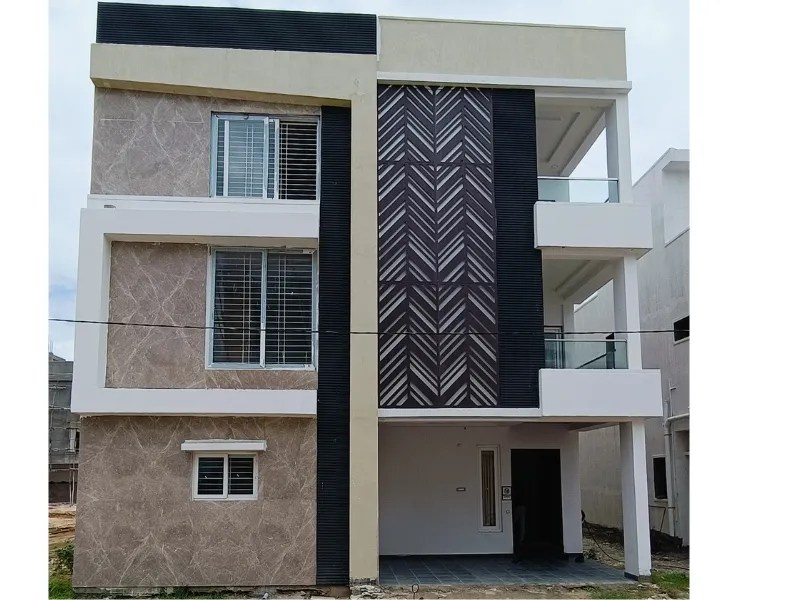Tips to Have less Interest Rates on Your House
Koheli

Introduction
The thought of owning a home is incredibly alluring, but it soon runs into the most significant roadblock of them all: interest rates. You are finding the best interest rates and learning about any potential pitfalls or traps that a bank might be offering can be a complicated process. Your mortgage will almost certainly dominate your monthly spending, and it can be very frustrating to have ongoing outlay costs when your income is barely enough to cover basic needs. The idea of lower mortgage interest rates plus a rise in monthly disposable income is almost too fantastic to be true.
If you don't have a proper strategy, your monthly budget may be severely stressed by your home loan EMIs (equated monthly installments). The interest rates on house loans are at an all-time low, making it the perfect moment to apply. Keep in mind that the main factors affecting your monthly payment are the size of your loan, the interest rate on it, and the length of the loan. So, here are five tips to reduce interest rates.
1. The shorter the tenure, the more beneficial it'll be.
As previously indicated, your loan tenure is one of the main elements determining the interest you must pay. Though shorter assignments, like 10 to 15 years, may help lower the overall interest payable, longer terms, like 25 to 30 years, will reduce the monthly installment amount. Using a house loan EMI calculator, you can see how the interest is significantly lowered for loans with shorter terms. Therefore, consider the loan length before applying, so you don't pay more interest.
2. A good credit score is essential.
How you handle borrowed money is reflected in your credit score. A score above 750 is regarded favorably because it indicates financial soundness. You would be viewed favorably by lenders as a reliable borrower, and they would provide you with better loan terms.
3. Prepayment is a good option.
You can also choose the home loan overdraft policy according to the terms of your house loan account. In addition to the monthly EMI payments, you can transfer them to the house loan account if you have any extra cash. Until the account holder withdraws the money, an additional payment of this kind is regarded as a prepayment on the extended loan. In this way, you can shorten the loan term and the interest payments that apply to the account by making new deposits. Your home loan account now effectively serves as a type of credit card that you can use to withdraw above the allowed amounts in times of extreme necessity or emergency.
4. Researching and comparing rates
Research is essential when deciding which lender gives the best services and has more patience regarding interest payments, with no potential traps in the intermediate term. Before choosing a particular product or lender, you must conduct thorough research on loan products and compare rates. You can find a fuller view of the rates and other fees charged by various lenders on several third-party websites. It is best to compare the home loan interest rates offered by all banks before settling on a particular bank or home loan program.
5. Try to pay more as a down payment.
Banks and other financial organizations often finance 75% to 90% of the total value of the property. The repayment can be made significantly less if you provide a larger down payment, which will have less interest.
Refinancing the home loan
The first thing to do is ask your current lender to lower your rate if you feel they are not providing you with favorable terms. Most lenders will try to retain their loyal clients and may comply. You might request that the bank match the interest rate offered by a rival institution or that they reduce it in light of your credit history. Afterward, you might move the loan to a different lender. All you need to do is look for a different lender with interest rates that meet your needs and ask about any additional fees they may charge. You can also apply to your lender to obtain the necessary information and process KYC.
Paying EMI
Increase the EMI payments by 5% annually, which could eventually work towards easing the burden of interest payments. Match this increase in price with the potential increase in your salary; combining these two effects will lead to quicker and more efficient repayment of the principal amount. Along with a shorter loan tenure, make sure you sign up for EMI payments that you can handle financially. This is also why financial experts ensure that their clients maintain a safe and low debt-to-income ratio.
Affordability
The ability to pay back loans and EMIs is a crucial consideration when doing so. Owning a home is a significant financial commitment, so many individuals turn to borrow money to cover the costs of the entire project. The government itself makes frequent announcements of offers under the "affordable housing" program and the Pradhan Mantri Awas Yojana to promote the use of such loans.
Conclusion
Everyone wants to own a home, so home loans have become a necessary and inescapable aspect of our lives. The idea of lower mortgage interest rates plus a rise in monthly disposable income is almost too fantastic to be true. The interest rates on house loans are at an all-time low, making it the perfect moment to apply. The repayment can be made significantly less if you provide a larger down payment, which will have less interest. If you have already taken out a home loan, you should transfer to a lender offering lower interest rates. One of the lifelong commitments is paying off debts. The best way to live stress-free is to apply for and repay a house loan methodically and in an organized manner.




